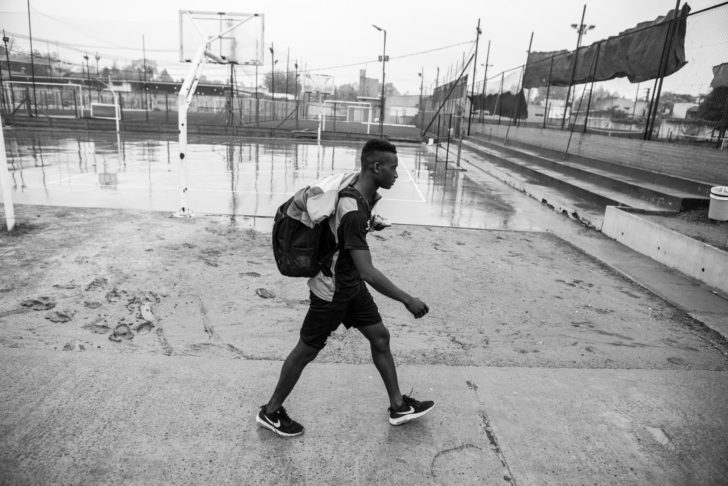On January 30, 2017, former president Mauricio Macri issued a Decree of Necessity and Urgency (DNU) modifying Migration Law 25.871. That DNU, stemming from biased information and prejudice against foreign persons, was part of a social exclusionary policy that directly linked migrant persons to acts of crime, thus arguing for their immediate deportation.
While the DNU was in force, migrant rights and guarantees were being violated: rules of due process, the right to family life, to develop life plans, to access justice and effective judicial protection, and to freedom of movement. Moreover, the DNU in many cases separated mothers and children, and subjected thousands of people to imminent deportation, tying them to the fate provided by the scarce legal resources under the policy. All foreigners in Argentina were left facing the uncertainty of deportation.
The DNU provided for the express detention and deportation of migrant persons involved in any type of criminal legal proceedings, whether convicted or not. It even applied to foreign persons with permanent residence status in Argentina, no matter how many years of residence, roots or social ties. It also authorized the deportation of anyone who had committed administrative errors in their migration process, such as not having proof that they entered the country at an authorized point of entry.
DNU 70 also represented a shift in the role that Argentina had played in the region and in the world with the adoption of its Migration Law in 2004. The provisions under the DNU were part of new trend in South America of adopting policies that, in the name of a distorted idea of security, increase State discretion to implement acts of control, detention and deportation of migrants. Brazil, Colombia, Chile, Ecuador and Peru have all modified their migration policies and standards of protection in recent years, promoting an unprecedented increase in deportations in the region.
When the DNU was implemented in 2017, CELS, the Argentine Commission for Refugees and Migrants (CAREF) and the Colectivo por la Diversidad jointly filed a petition for constitutional protection (amparo) to repeal Decree 70/17 on the grounds that it violated a series of rights and did not meet constitutional requirements for issuing a regulation of that type.
The judge of first instance dismissed the petition. However, in our appeal in March 2018 before the Federal Administrative-Contentious Chamber, the court ruled that the decree was unconstitutional in that its measures violated migrants’ human rights and did not meet the constitution requirements for issuing a DNU. The State then submitted an appeal before the Supreme Court, which was granted. At the end of 2020, the National Attorney General’s Office stated that the DNU should be declared unconstitutional for failing to meet the requirements for issuing a DNU. The Supreme Court case is pending, but the Administrative-Contentious decision and the Attorney General’s stance are part of the grounds for today’s executive decree to repeal DNU 70/17.
Today’s decree also considered that the UN Committee on the Protection of all Migrant Workers and Members of Their Families, the Committee on the Rights of the Child and the Committee Against Torture have all urged the Argentine State to repeal the DNU.
The government’s decision is essential for guaranteeing the rights of migrant persons in Argentina. It also paves the way for the country to once again affirm, without contradictions, at the regional and international levels, the principles of the Migration Law and its regulations, including the right to migrate, the right to migration status regularization, non-discrimination, non-criminalization of migration and the right to due process in all migration procedures and processes.

